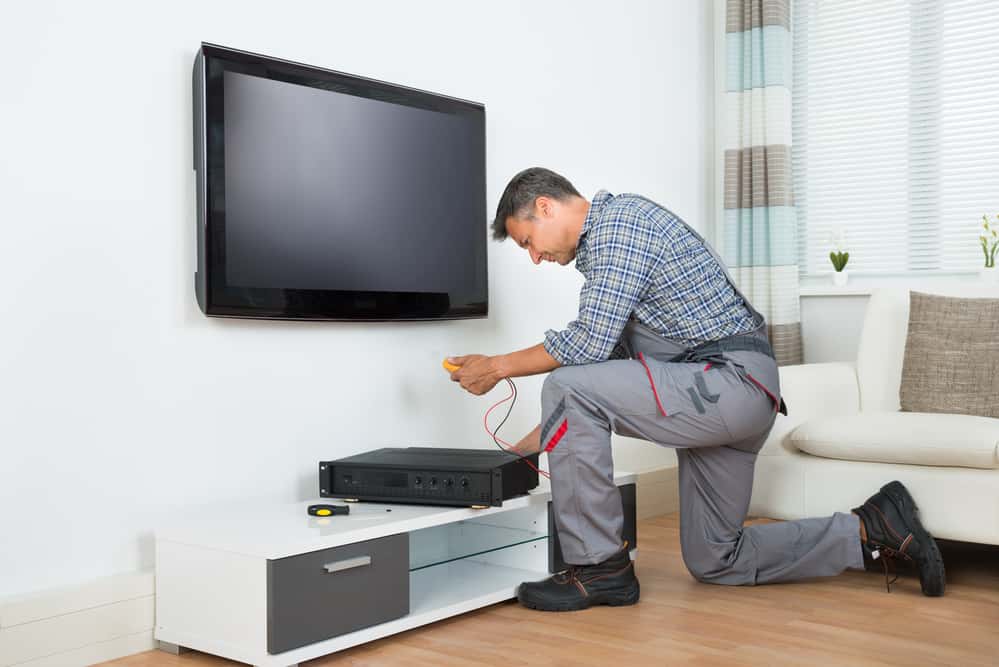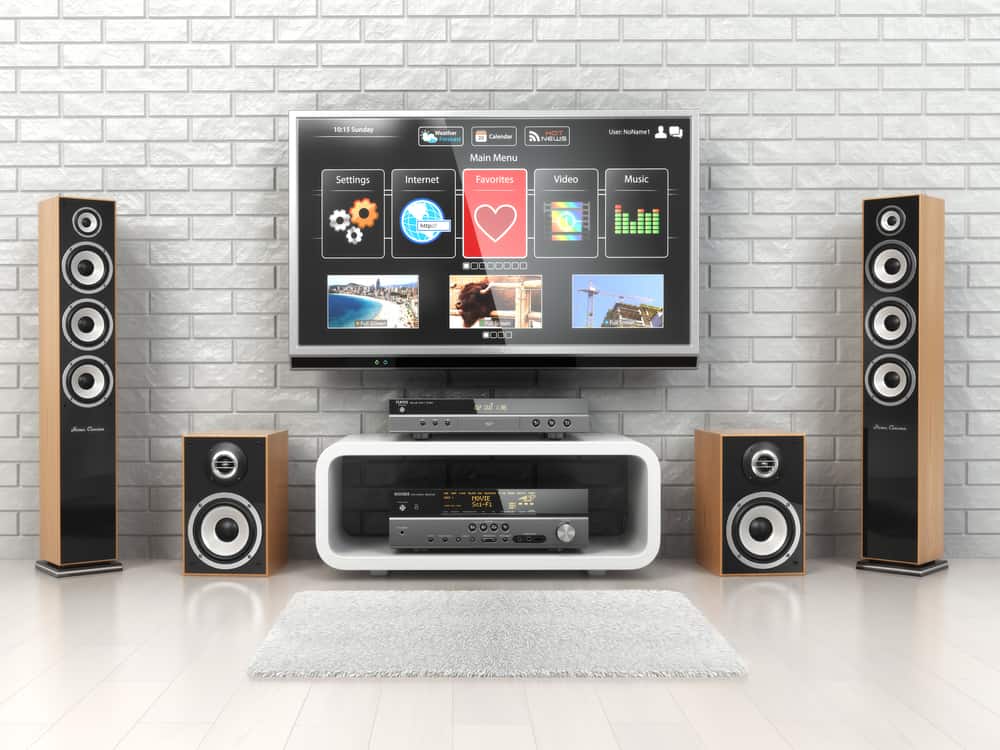

More and more audio systems require a receiver to provide the rich sound you require. While you can get a system that comes with its receiver, there are situations when things go wrong. Everyone knows you need wires to connect things. But without a receiver, how do you get sound from your system?
Whether your receiver has broken down or you do not have one, you can quickly learn how to connect speakers to a TV without a receiver in a few different ways. Boom Speaker provides some simple alternatives to enjoy your movie if the TV has no audio output. Still, there are a few more straightforward options out there should you not have a receiver – mostly in terms of quality and richness.
Table of Contents
If you do not have a receiver or it is damaged, you could use a basic two-channel amplifier. These units work pretty much the same way. The technology and operating principles are almost identical, with a few differences.
An amplifier is a great option when you want to improve the sound coming out of your speakers while also connecting it to the TV set. It features the same characteristics as a receiver. Well, the same rule applies in this situation too. What are the steps then?
Are there any restrictions? Yes. A two-channel amplifier will not be able to deal with too much power, so you need some energy-efficient speakers. It is worth a try anyway. Moreover, the TV brand and type will also matter.
The wireless connectivity is often overlooked. Sometimes, TV owners are not even aware of it – they forget about it. Other times, it is left behind because a wired connection is better in terms of quality. When you use a receiver for years, and it fails on you, you forget about this handy alternative.
When there are no wires to connect, you will never need a receiver. There are a few different types of wireless connectivity. Most commonly, you will perform it via Bluetooth. So, how to connect speakers to a TV without a receiver?
Again, there are some conditions – or better said restrictions. Not all smart TVs come with Bluetooth connectivity. It is always worth checking, though.

A hub can make an excellent alternative for a receiver. Even if you have never had a receiver, you can get a hub instead because, well, it is much cheaper. While Lifewire comes with some good ideas for TV and speaker connectivity in this article, a center is a more cost-efficient option.
A hub is a repeater. It has two or more ports, and it aims to connect devices. It is more commonly used in networking, as it can establish robust LAN networks. From this point of view, no one thinks about using a hub as a receiver.
The hub is similar to a receiver in appearance, too, but it is much smaller.
Now, if you think about getting a hub, there are two different options on the market:
You can use any of these types, yet the intelligent one is more expensive, and there is no use for it. Therefore, both models will provide the same effect.
Reliance Digital came up with a few ideas to connect speakers to a TV in this article here, yet some of them involve using a receiver – not the case in this situation. A direct connection is recommended as an easy option for everyone.
It sounds easy, but it is not always worth it. It is not too efficient, and even if it works, sound quality will not be the best – better than your TV speakers, though. Look behind the TV and find the output. Stick the speakers in and enjoy them.
It does not always work. Also, there are a few modern TVs that do not even have such outputs anymore.
Decoders are used in a plethora of applications. They represent some of the most common devices out there. However, they are not designed for such activities. When trying to figure how to connect speakers to a TV without a receiver, a decoder is never your first choice.
But at the same time, if you have one around, its ports can be quite useful to come up with a connection. Make sure they match, and there you go.
As a short conclusion, a receiver is a must to enjoy a rich sound and quality audio. This is the reason wherefore many high-quality systems come with one. Some manufacturers match the receiver quality to the quality of their audio systems. However, this is not a general rule. Plus, it might fail on you when least expected. Whether you have some friends over to watch a movie or you plan a romantic evening with your partner, you must improvise fast and come up with a quick solution.
The good news is you do have a few good alternatives to the classic receiver. The bad news is that not all of them might work, as it depends on the speakers, TV make, and model.